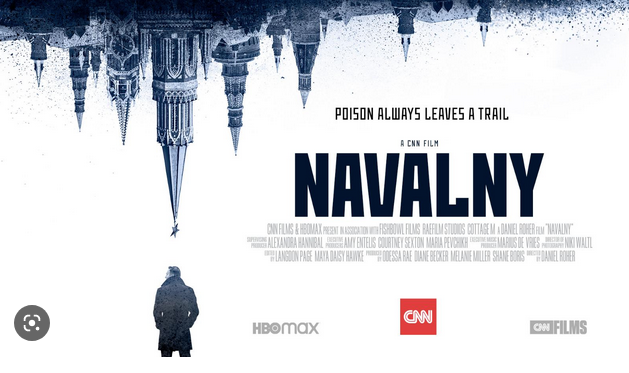Why Did Navalny Win The Oscar?
This year I kept my Oscar predictions to myself, still smarting from my incorrect 2019 guess, RGB. This season, it turns out, my top pick was right! So why did Navalny, a film about a poisoned Russian presidential candidate, win Best Documentary Feature in 2023?
I’d love to hear your opinions. Here’s mine.
First, let’s look at the other four candidates. Judging from their loglines, all of these nominees embody the predominant structural form to emerge from the golden age of documentaries. They are character-driven documentaries–stories that follow a protagonist on a quest–rather than essay-style films that are structured around ideas.
What are their quests?
To save the black kite.
Document the volcano.
Fight the Saklers.
Find refuge in wartime.
(See below for more descriptive log lines.)
So what makes Navalny so different? After all, this fly-on-the-wall film also relies on a quest: to expose the 2020 assassination attempt of Russian opposition leader Alexei Navalny.
IMHO, there are two reasons. First, it speaks to our times. Navalny reveals the psychology of power behind Russian warmongers—as well as an alternative vision. As NPR’s Christy Lemire says, “This is fantastic! Essential, urgent, and it couldn’t be more relevant.”
Second, the film weds its historical plot points (Navalny’s past) with an explosive contemporary ending. “Usually, only Hollywood screenwriters can conjure up a narrative like the one that Navalny has been living,” says critic Sarah Ward. So the historical part of the documentary was already dramatic.
In addition, director Daniel Roher’s cinema verite approach pays off big with “the most jaw-dropping phone call in cinematic history,” according to Filmspotting.
Verite-style documentaries that document contemporary life unfolding in front of the camera are maddingly unpredictable. After all, your protagonist’s journey might end up with no payoff, no quest pinnacle.
But like a famous author or screenwriter, Roher delivers an astonishing contemporary climax. Did it just happen to unfold? Find out how the director set up this stunning sequence in Navalny: A Scene Anatomy.
Now, to stress the ubiquitous success of character-driven documentaries, let’s move on to highlight the plot lines in the other nominees.
All the Beauty and the Bloodshed chronicles photographer Nan Goldin’s “fight to hold the Sackler family accountable for the overdose crisis.”
A House Made of Splinters follows “three children seeking refuge” at Ukrainian shelter.
Even in the more lyrical nominees, such as Fire of Love and All That Breathes, the presence of a quest is obvious in the log line. Fire of Love “follows two bold explorers as they venture into the unknown”, that is, erupting volcanoes. And in the poetic All That Breathes, “two brothers race to save a casualty of the turbulent times: the black kite.”
Why do you think Navalny won? I’d love to hear your brief responses–and let me know if it’s OK to quote you!
For more on editing character-driven documentaries, check out my most popular seminar.
